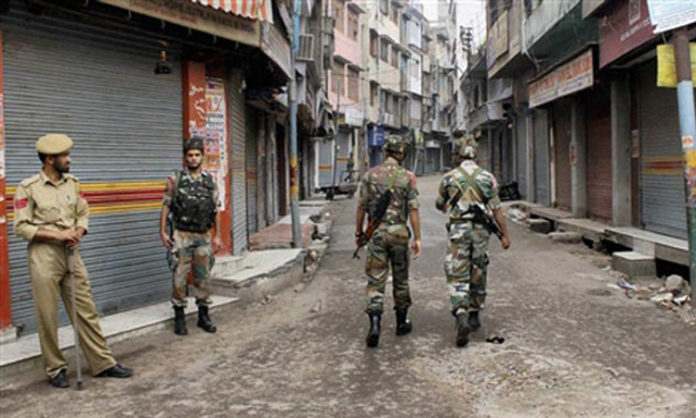The Centre on Monday declared Jammu and Kashmir as a Union Territory with legislature. Under the Jammu and Kashmir Re-organisation Bill, Ladakh will be taken out of the state and will be a Union Territory without legislature.
Even as the new BJP government explores all options to bring an end to the brutal cage match taking place in Kashmir, with the setting up of a Delimitation Commission as one of the prongs available on the table to correct the regional disparity, it is actively taking a view on the contentious Article 35A which prevents mobility and greater integration with the Union of India.
Meanwhile, the National Conference leader Omar Abdullah on Saturday said that the J&K Governor S P Malik has assured his party that no moves are planned on repealing Articles 370 and 35A of the Constitution, or the state’s trifurcation. However, the former J&K chief minister said he wants assurance on these issues from the Centre in Parliament on Monday. Abdullah and some of his party colleagues met the Governor Saturday on these issues. “He assured us that there was no movement on (repealing) Article 370 or Article 35A or delimitation (of constituencies in the state),” he told reporters.
What is Article 35A?
Article 35A was introduced in 1954 by the way of a Constitutional Order by the then President Rajendra Prasad on the advice of the Nehru government. To make any changes to the constitution or add a new law, the process prescribed by the constitution is to introduce the bill in the Parliament.
Jammu and Kashmir’s permanent residents enjoy special rights under article 35A. Only the permanent residents have the right to own immovable property, settle permanently, or avail state-sponsored scholarship schemes. . This article also restricts companies from hiring non-resident persons in the state and denies property rights to a woman who marries a person from outside the state. Article 35A was incorporated into the Constitution in 1954 by the orders of the then president Rajendra Prasad on the advice of the Jawaharlal Nehru Cabinet.
Since Article 370 (1) (d) of the Constitution was issued under Presidential Order, the President can make certain ‘exceptions and modifications’ to the Constitution for the benefit of ‘State subjects’ of Jammu and Kashmir. Hence, Article 370 of the Constitution grants special status to Jammu and Kashmir, while Article 35A ensures special rights to the permanent residents of Kashmir.
What does Article 35A entail?
Article 35A gives the J&K government the right to decide who qualifies as a ‘permanent resident’. The permanent resident is subject to some special rights. Only permanent residents can acquire land, settle, and get government jobs, scholarships in the state. The Article also says none of the above laws can be held as void on the ground that it takes away the rights conferred on other citizens of the country.
Can Article 35A be nullified?
In case the Article 35A is repealed, it will allow people from rest of the Indian states to acquire property in Jammu and Kashmir, settle there just like any other state in the country with equal rights.
However, legal experts are of the view that the article cannot be revoked as Article 35A was issued in exercise of the powers conferred by Article 370 (1) of the constitution, basis which the state enjoys its autonomy. These two articles are the constitutional connection between Jammu and Kashmir and the Central government and any tinkering with them will render the Treaty of Accession null and void.
An NGO – We the Citizens – challenged Article 35A in the Supreme Court on the grounds that it was not added to the Constitution through an amendment under Article 368. It said that instead of being presented before parliament, it came into effect immediately.
A second petition filed by Jammu and Kashmir native Charu Wali Khanna has challenged Article 35A for protecting certain provisions of the Jammu and Kashmir Constitution, which restrict the basic right to property if a native woman marries a man not holding a permanent resident certificate. “Her children are denied a permanent resident certificate, thereby considering them illegitimate,” the petition said.















































